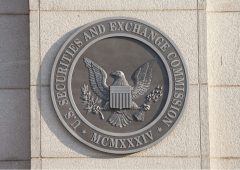Turkish Bank Halts Crypto Services Following New Regulatory Law
08.11.2024 9:30 1 min. read Alexander Stefanov
In July 2024, Turkey implemented the "Law on Amendments to the Capital Markets Law," commonly referred to as the "cryptocurrency law," marking a significant step in the country's efforts to regulate the digital asset sector.
This law grants the Capital Markets Board (CMB) the authority to oversee cryptocurrency service providers. In response, the CMB published a temporary list in early August detailing institutions that would cease operations and those that would continue in the crypto space.
Among the institutions listed was QNB, a prominent Turkish bank, which had announced plans to operate its crypto services under the brand “QNB Digital Assets.”
However, as of November 7, 2024, QNB Digital Assets officially ceased its cryptocurrency activities. While the company did not provide specific reasons for the decision, it issued a statement confirming the termination of services.
The statement clarified that no new customers would be accepted starting from the specified date. It also mentioned that all accounts on the platform would be closed by December 9, 2024. For any inquiries during this transition, users were advised to contact the company via email.
Additionally, QNB Digital Assets assured that personal data associated with customer accounts would be retained for 10 years in compliance with legal requirements.
-
1
Cardano Considers Crypto Wealth Fund to Supercharge DeFi
13.06.2025 21:00 2 min. read -
2
Pakistan Turns Unused Power Into Bitcoin and AI Infrastructure
13.06.2025 22:00 1 min. read -
3
Massive Foreign Capital Exodus from U.S. Markets Raises Alarms
23.06.2025 9:00 1 min. read -
4
Crypto Market Outlook Strengthens as U.S. Economic Clouds Begin to Clear
14.06.2025 8:00 2 min. read -
5
Arthur Hayes Sees a “Stablecoin Gold Rush” – and a Graveyard of Future Flops
18.06.2025 13:00 2 min. read
U.S. Supreme Court Backs IRS Access to Crypto Exchange Data
In a major development for cryptocurrency regulation and user privacy, the U.S. Supreme Court has declined to hear a challenge to the IRS’s authority to collect broad customer data from crypto exchanges.
Crypto Advocates Back Sen. Cynthia Lummis’ Push to Reform Digital Asset Tax Rules
As the U.S. Senate debates a sweeping reconciliation package dubbed the “Big, Beautiful Bill,” crypto industry advocates are rallying behind an amendment introduced by Senator Cynthia Lummis aimed at reforming outdated and burdensome tax rules for digital assets.
Germany’s Largest Banking Group Sparkassen to Offer Crypto Trading by 2026
In a major shift from its earlier stance, Sparkassen-Finanzgruppe — Germany’s largest banking group — is preparing to introduce cryptocurrency trading services for retail clients by the summer of 2026, according to a report from Bloomberg.
Kazakhstan to Establish State Crypto-Reserve Under Central Bank Oversight
Kazakhstan is taking a major step toward integrating digital assets into its national financial strategy, with plans to establish a state-managed crypto-reserve.
-
1
Cardano Considers Crypto Wealth Fund to Supercharge DeFi
13.06.2025 21:00 2 min. read -
2
Pakistan Turns Unused Power Into Bitcoin and AI Infrastructure
13.06.2025 22:00 1 min. read -
3
Massive Foreign Capital Exodus from U.S. Markets Raises Alarms
23.06.2025 9:00 1 min. read -
4
Crypto Market Outlook Strengthens as U.S. Economic Clouds Begin to Clear
14.06.2025 8:00 2 min. read -
5
Arthur Hayes Sees a “Stablecoin Gold Rush” – and a Graveyard of Future Flops
18.06.2025 13:00 2 min. read


